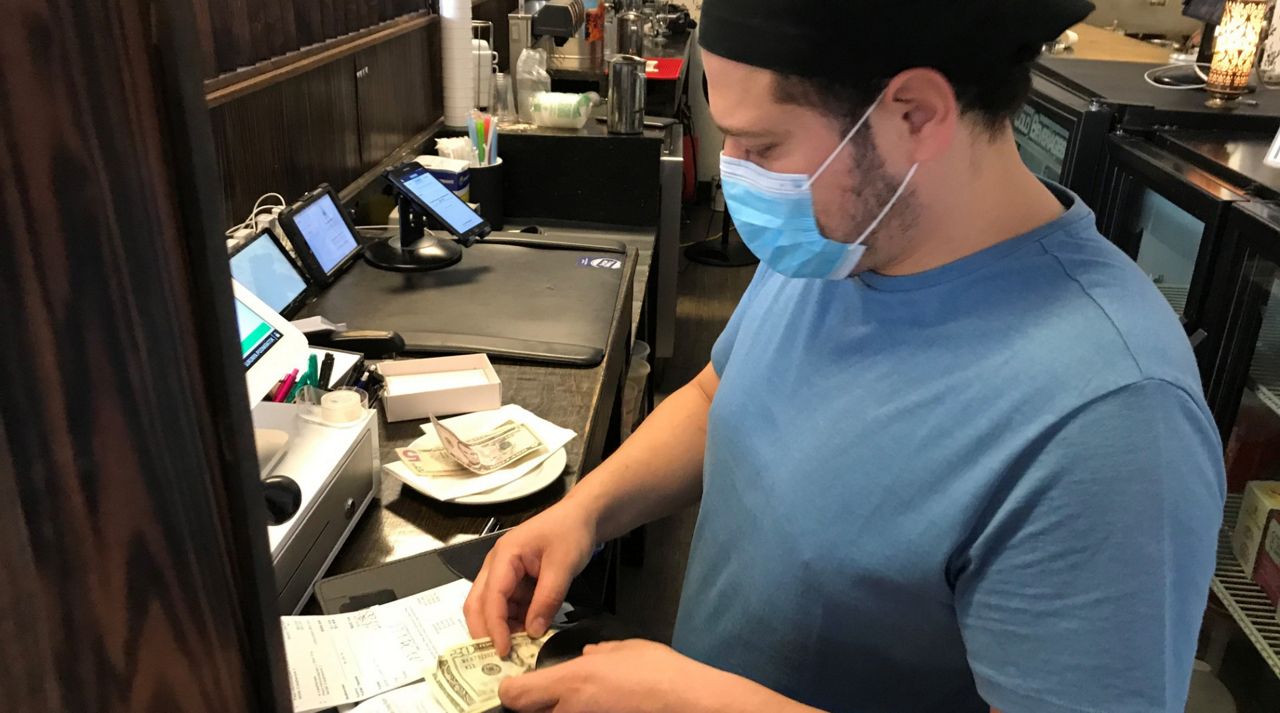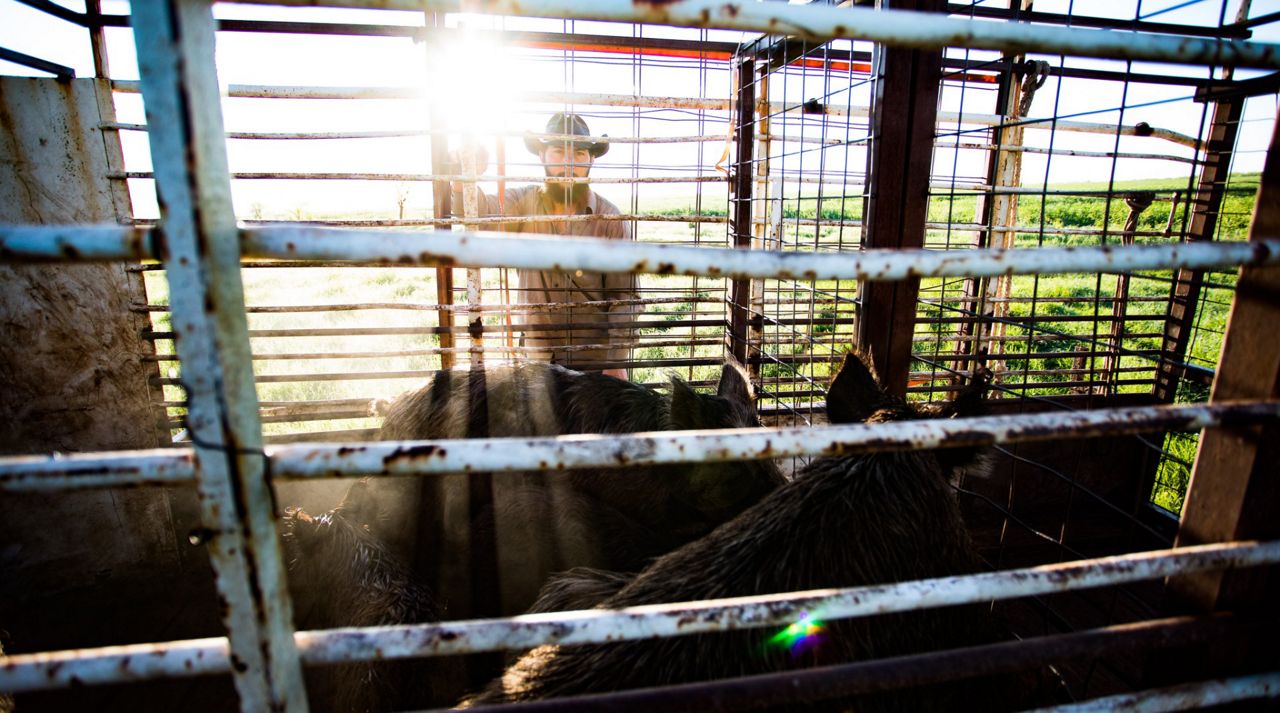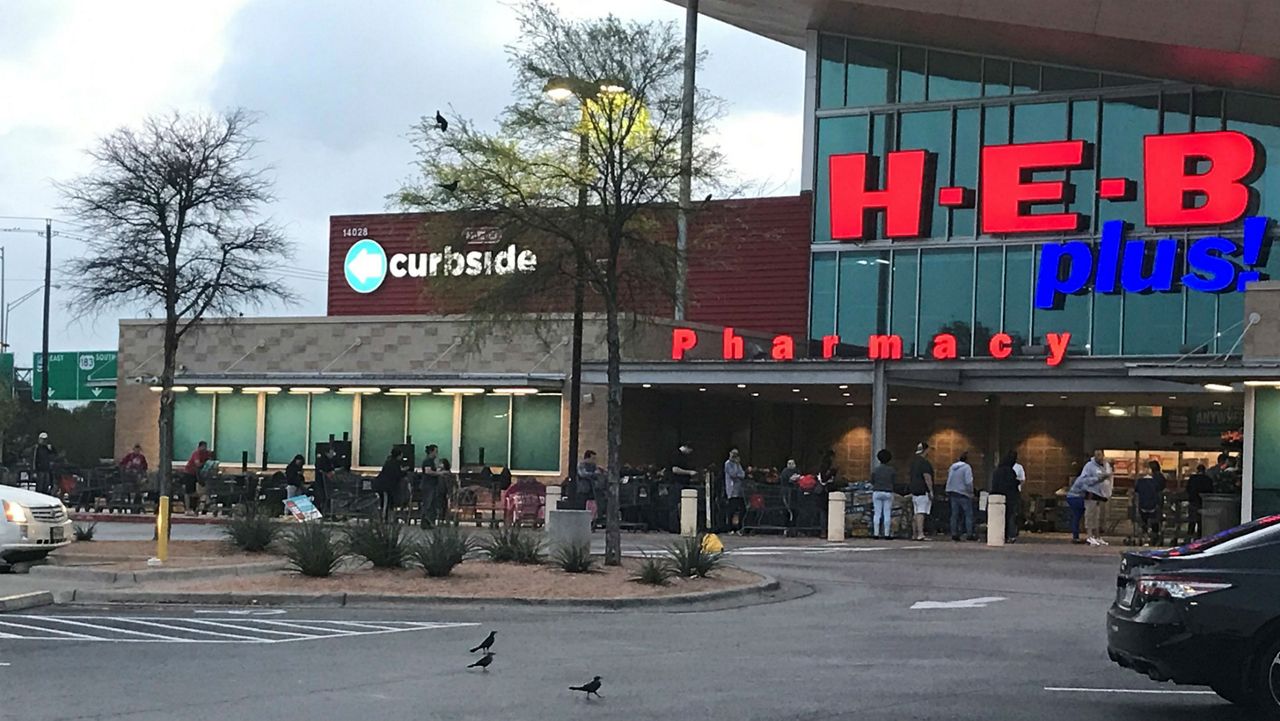SAN ANTONIO -- It’s hard enough to find certain supplies right now even if you can afford them and live near major grocery stores, but for people in rural areas it can become a dire situation if they don’t have the money or transportation.
- Three-time cancer survivor and wife opened restaurant
- Converted to make-shift pay-what-you-can grocery story
A new cafe in the unincorporated community Lakehills is willing to help with the problem, even though it could cost one of the owners her life.
Molly McKinney’s doctors, friends and family are all insisting she stay in quarantine, but the three-time cancer survivor with an autoimmune disorder insists on doing what she can, while she can.

Painted windows at the Local's Cafe in Bandera County, notifying people of jobs opportunities and food opportunities (Spectrum News)
“Everyone in my friends and family is like ‘you should not be having contact with the general public,’ but I just can’t watch these people suffer when there’s something I can do about it, however small," McKinney said.
Last week, McKinney and her wife used their life savings to open Local's Cafe, a pay-what-you-can restaurant near Medina Lake. But the couple quickly realized that the unincorporated community in Bandera County needed was not a cafe, but a grocery store.
"It came like a penultimate moment, where it was turn back altogether and don’t open anything, which we could’ve done," McKinney. "Or, find a way to serve our community in the midst of a crisis."
The couple decided to turn the dining room into a makeshift store.
“People were coming to us literally crying, saying ‘could I just get a ziplock bag of beans? Could I just get, you know, a cup of flour?’” McKinney said.
So Local's Cafe began taking orders online for groceries and hard-to-find necessities such as toilet paper and hand sanitizer.
“So there are people out here who are not only homebound, but don’t have the money for food and can’t get to a grocery store and we’re in the middle of nowhere," McKinney said. "So we decided to begin accepting grocery orders and allowing people to pay what they can.”
The couple also decided to move the kitchen to a new food truck, where they will continue to provide meals.
“Until the crisis is over, to us, it felt like abandoning a very vulnerable community population in almost a wartime situation when we have access to these things," McKinney said.
With COVID-19 continuing to spread, McKinney doesn't know what the long term will look like for her life or for her restaurant.
She says she's come to terms with dying, but worries about her wife and 5-year-old son.
“There’s no not getting this for me, if I’m gonna get it, and there’s no avoiding fatality for me if I’m gonna get it, so what I want to do with those last moments, if that’s what they are, is the most good that I can," McKinney said.









